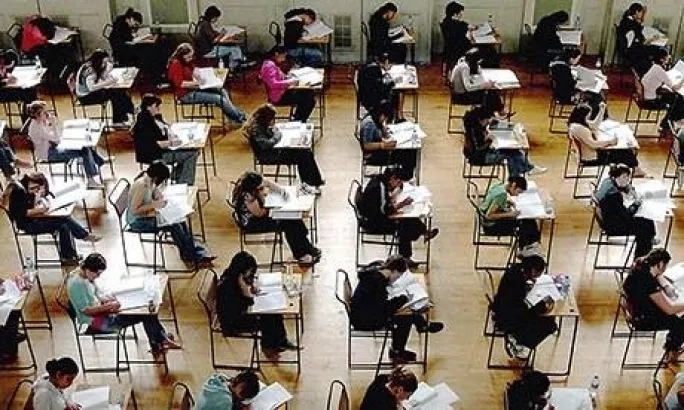Fall in A-level English entries blamed on 2012 GCSE ‘fiasco’
A drop in the number of candidates sitting A-level English this year has been blamed on 2012‘s GCSE fiasco that left thousands of teenagers with lower grades than expected.
Figures released today show fewer students entered English this year than previous years, and that sixth-formers continue to avoid studying modern foreign languages. However, the number of entrants for the sciences has gone up.
The stats were released by the Joint Council for Qualifications, which show the number of entries for A-level and AS-level qualifications this year.
It is the first year that students sat exams under the government’s reforms, which meant candidates were no longer be able to re-sit papers throughout the year and instead were expected to sit a single exam at the end of the year.
The data shows that English saw a 4.4 per cent drop in entries this summer, down to 86,036 from 90,007 the year before.
And Malcolm Trobe, deputy general secretary of the Association of School and College Leaders (ASCL) suggested the fall was down to major issues with GCSE English two years ago, when this year’s A-level entrants would have got their GCSE results.
Mr Trobe said: “There’s quite clearly some indication of an unexpected drop in entries to A-level English, which of course coincides with the issues in 2012 to do with GCSE results in English.”
In 2012, it was claimed that thousands of students had received lower than expected results in GCSE English after grade boundaries were raised between the January and June exam sessions.
The decision led to a legal challenge by an alliance of pupils, teachers, local authorities and unions who took the exams watchdog Ofqual all the way to the High Court. However, a High Court judged ruled that while students were treated unfairly, Ofqual did not act unlawfully.
The JCQ figures also revealed that modern languages continue to see a fall in the number of entrants, with French seeing a 7.5 per cent drop in candidates. Overall, the three main modern foreign languages, French, Spanish and German suffered a 4.2 per cent slump in entries.
The numbers did show the effect the English Baccalaureate has had on students’ decision making when it came to their choice of A levels. This is the first year that the impact of the EBac has had on post-16 choices with more students opting to study traditional subjects at AS level.
In particular, entries for Geography, History and Spanish increased by 16.9 per cent, 14.2 per cent and 14.8 per cent respectively at AS level. In contrast to A level, all modern foreign languages saw a rise of 5.6 per cent. Indeed, AS entries for all EBac subjects increased.
The Department for Education said the figures showed government policy was working.
“These figures show the positive impact of the EBac is now beginning to feed through to post-16 study, with increases in students studying the subjects at AS level that will help to keep their options open when applying to university,” a DfE spokesperson said.
“Already the EBac has reversed the long-term decline in the proportion of pupils studying GCSEs in the subjects most valued by employers and universities, and now we are seeing that follow through into AS levels. We expect to see the trend continue into A level entries next summer.”
Keep reading for just £1 per month
You've reached your limit of free articles this month. Subscribe for £1 per month for three months and get:
- Unlimited access to all Tes magazine content
- Exclusive subscriber-only stories
- Award-winning email newsletters




